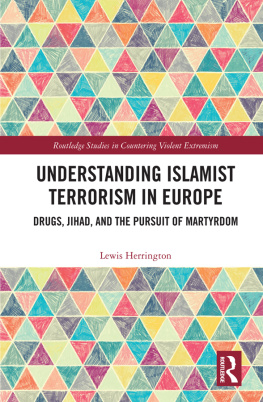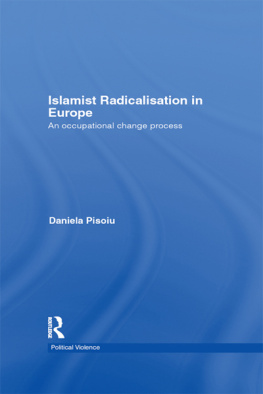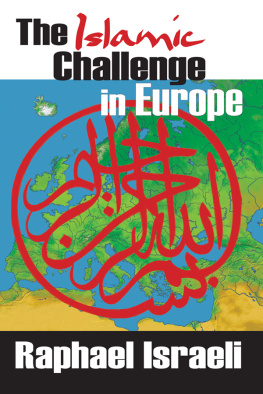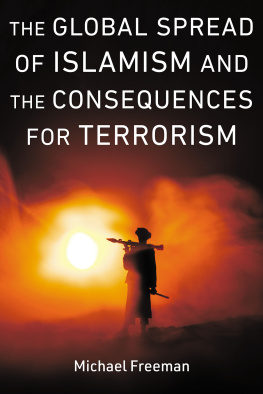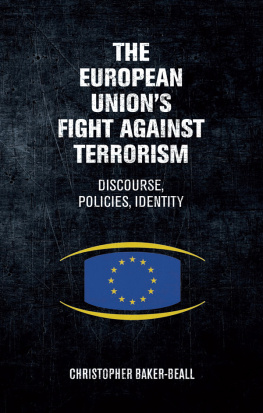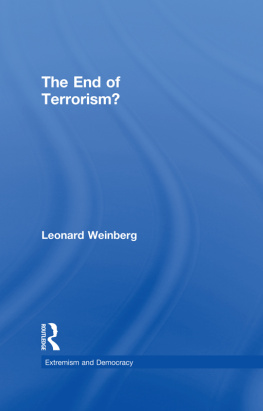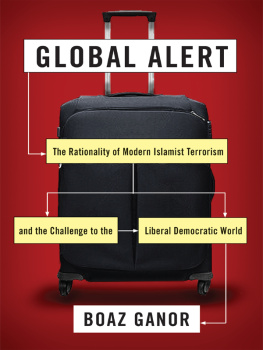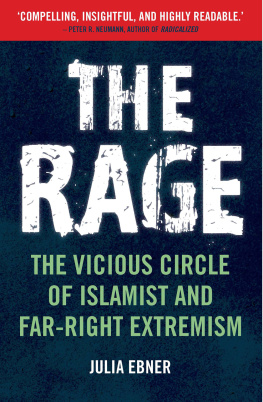This fascinating book is required reading for all with an interest in understanding extremism and martyrdom in modern Europe. Dr Herrington offers a profound insight into the theology, theory, psychology, and political aspirations of those pursuing Islamist terrorism. He provides a compelling portrait of how heresy has taken hold, and of the dangers it presents. Anger with terrorists is not enough for dealing with this contemporary and severe risk to public safety and national security: understanding the motive forces behind it is essential. That understanding is increased by this excellent book.
Lord Carlile of Berriew, CBE, QC, former Independent Reviewer of Terrorism Legislation, UK
Understanding Islamist Terrorism in Europe
This book argues that guilt, shame, and remorse, associated with a history of substance abuse, explain why a minority of Islamist extremists carried out suicide terrorism in Europe between 2001 and 2018.
Since 9/11, Islamist terrorism has dominated the European security landscape, but there has been little systematic analysis of either the attacks or the men responsible. This book addresses that gap, drawing on terrorist discourse, court transcripts, elite interviews, government reports, and three years of ethnography to provide an exhaustive account of how and why Islamist terrorism has occurred in Europe. Making a detailed analysis of 48 terrorist attacks carried out by 80 suicide terrorists, the book introduces two new theories. The first argues that most of these men first engaged in Islamist extremism as an alternative to substance abuse. The second contends that, following a five-stage process of radicalisation, cognitive dissonance triggered guilt, shame, and remorse over previous misconduct. From this emotional distress, suicide terrorism emerged as a rational choice ahead of either suicide or a return to active addiction. This book argues that the root cause of suicide terrorism in Europe is not so much politics or religion but is more about personal crisis and a search for redemption.
This book will be of great interest to students of terrorism/counterterrorism, de-radicalisation, political Islam, and security studies in general.
Lewis Herrington teaches Politics of the Middle East at Regents University, UK.
Routledge Studies in Countering Violent Extremism
This book series sets out to become the first interdisciplinary platform for the study of issues pertaining to countering violent extremism, such as deradicalization and disengagement programs and individuals as well as collective processes of leaving terrorism and violent extremism behind. Additional focus points will be the impact of programs, different cultural notions of CVE, results of large-scale CVE-related research projects, specific guidance for practitioners and policymakers in building and maintaining CVE programs, mechanisms to evaluate initiatives, as well as innovative techniques to design new ones. The series aims to help establish a new field of deradicalization studies and to build a bridge across the disconnect between experts from different fields, countries and specialities.
Counter-Terrorism Community Engagement
Pitfalls and Opportunities
Jason Hartley
Selling De-Radicalisation
Managing the Media Framing of Countering Violent Extremism
Gordon Clubb, Daniel Koehler, Jonatan Schewe, and Ryan OConnor
Understanding Islamist Terrorism in Europe
Drugs, Jihad, and the Pursuit of Martyrdom
Lewis Herrington
For more information about this series, please visit: www.routledge.com/Routledge-Studies-in-Countering-Violent-Extremism/book-series/CVE
Understanding Islamist Terrorism in Europe
Drugs, Jihad, and the Pursuit of Martyrdom
Lewis Herrington
First published 2022
by Routledge
2 Park Square, Milton Park, Abingdon, Oxon OX14 4RN
and by Routledge
605 Third Avenue, New York, NY 10158
Routledge is an imprint of the Taylor & Francis Group, an informa business
2022 Lewis Herrington
The right of Lewis Herrington to be identified as author of this work has been asserted by him in accordance with sections 77 and 78 of the Copyright, Designs and Patents Act 1988.
All rights reserved. No part of this book may be reprinted or reproduced or utilised in any form or by any electronic, mechanical, or other means, now known or hereafter invented, including photocopying and recording, or in any information storage or retrieval system, without permission in writing from the publishers.
Trademark notice: Product or corporate names may be trademarks or registered trademarks, and are used only for identification and explanation without intent to infringe.
British Library Cataloguing-in-Publication Data
A catalogue record for this book is available from the British Library
Library of Congress Cataloging-in-Publication Data
A catalog record for this book has been requested
ISBN: 978-0-367-28152-6 (hbk)
ISBN: 978-1-032-04025-7 (pbk)
ISBN: 978-0-429-31662-3 (ebk)
DOI: 10.4324/9780429316623
Typeset in Times New Roman
by Apex CoVanatge, LLC
In loving memory of my Grandfather
Dr Anthony Moyes M.B.E.
The personal and intellectual journey that culminated in this book began in 2009 during a visit to the West Bank in Palestine. In writing an MA thesis on the subject of suicide bombing, I learned of the importance of enabling environments. This experience led me to do a PhD. My thesis argued that a fellowship of Islamist extremists had incubated the mindset necessary to pursue terrorism in the United Kingdom. Over the next five years, under the supervision of Professor Richard Aldrich, I met with politicians, police officers, counter-radicalisation workers, ex spies, academics, investigative journalists, and former extremists. A few of the names I would like to thank include Lord Alex Carlile, Rt Hon David Blunkett, Rt Hon Charles Clarke, Amardeep Bassey, Duncan Gardham, Jahan Mahmoud, Omar Nasiri, Stuart Osbourne, and Richard Walton.
Upon submission of my PhD thesis in 2015, I had concluded that while extremism was a necessary condition for terrorism, it did not fully account for why only a minority pursue violence. Around the same time, terrorist attacks in Europe were increasing exponentially. Consequently, I expanded my UK based research to include all of Europe. By 2018, I had collected tactical data on 48 attacks and biographical data on the 80 men responsible. Evidence suggested that these men had turned to Islamic extremism following a history of substance abuse. Could a study of drug addiction provide the hitherto missing dimension? Over the next year, I undertook an ethnographic study of the 12-step fellowship of Narcotics Anonymous. I would like to express my sincere gratitude to the men and women who anonymously shared their experience of substance abuse, suicide ideation, and the emotional and psychological turmoil that surrounds relapse.
By 2019, I was ready to publish a book that contained everything I knew about Islamist terrorism in Europe. For helping me to secure a book contract and supporting me to deliver the manuscript, I pay special tribute to Professor Richard J. Aldrich, my friend and mentor. Without his tremendous love, support, and encouragement, I would never have made it this far. Thank you, Richard. Next, I would like to pay tribute to all the academics whose ideas helped me to develop my own. If I have seen further, it is by standing on the shoulder of giants. I offer my sincere gratitude to all the individuals who liberally gave their time for elite interviews and provided feedback on drafts of the manuscript. Also, thank you to Mohammed Asfaq, Ahmed Patel, Nick Aldworth, and various individuals from the Office for Security and Counter Terrorism who greatly assisted me along the way. At a personal level, thank you to Belle and Neil for providing a much-needed quiet environment from where I could type up my endless scribbles. Thank you to my family for the constant encouragement and validation. Thank you to Emi for keeping me company during those long hours of proof reading. Lastly, I give thanks for the life I have been given and I pray that I never lose sight of my primary purpose.

